Search Results
Showing results 1221 to 1240 of 2051
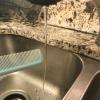
Static Water
Source Institutions
In this activity, learners will use static elecricity to bend a stream of water without touching it. Learners will explore physics and cause and effect through this activity.
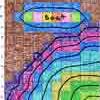
Mountains in the Sea
Source Institutions
In this 6-7 day investigation, learners begin with an introduction to seamounts that are present in the Gulf of Alaska.
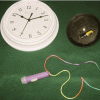
Can Energy be Created or Destroyed?
Source Institutions
In this activity, learners explore conservation of energy by experimenting with a solar cell light device.
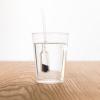
Eyedropper Hydrometer: Buoy your understanding of density
Source Institutions
Build a hydrometer (measures the density of a liquid) using a pipet or eyedropper.
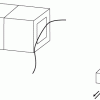
Physics in the Toy Room: Toppling Towers
Source Institutions
In this physics activity, learners use square blocks to explore how towers fall. Learners attach a piece of string to the side of a block and then construct a tall tower on top of this base block.
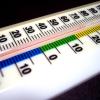
Canned Heat
Source Institutions
In this activity, learners explore how light and dark colored objects absorb the Sun's radiations at different rates.
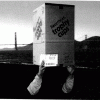
Personal Pinhole Theater
Source Institutions
Have you ever heard of a camera without a lens? In this activity, learners create a pinhole camera out of simple materials. They'll see the world in a whole new way: upside down and backwards!
Glowing Tonic
Source Institutions
In this sunny day activity, learners compare how a cup of water and a cup of tonic water reflect or refract light in the sun.
Pour Some: Measure Serving Size
Source Institutions
Make snack time into measuring time and learn to read Nutrition Facts labels. Try this when you’re using “pourable” foods, such as cereal, yoghurt, or juice.
Narrow It Down: Asking Yes-No Questions
Source Institutions
In this activity, the learner asks yes-no questions to identify a secret object (similar to Twenty Questions). This game is easy to adapt for different ages and different kinds of contexts.

Chocolate (Sea Floor) Lava
Source Institutions
In this edible experiment, learners pour "Magic Shell" chocolate into a glass of cold water. They'll observe as pillow shaped structures form, which resemble lavas on the sea floor.
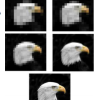
Patterns in Pixels
Source Institutions
This activity (page 2) draws upon a familiar, computer-based concept related to visual resolution: pixilation.
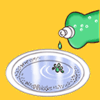
Pepper Scatter
Source Institutions
In this quick activity, learners break the tension that happens when water develops a "skin." Learners use water, pepper and some soap to discover the wonders of surface tension—the force that attract
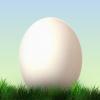
The Egg Activity
Source Institutions
Learners observe the outside and inside of raw chicken eggs, record descriptions, and hypothesize what will happen when a facilitator drops an egg on the floor.

Animal Guess Who
Source Institutions
In this game, learners take turns guessing toy animals from around their house based on the toy's characteristics.

Explore Like a Scientist: Fruity Observations
Source Institutions
In this activity, learners use their senses to collect information about a fruit and record their findings in a Science Journal.
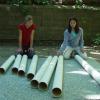
Music and Sound
Source Institutions
This activity (on page 2 of the PDF under SciGirls Activity: Music and Sound) is a full inquiry investigation into sound frequency.

Sustainable Fishing
Source Institutions
In this activity, learners use a model for how fishing affects marine life populations, and will construct explanations for one of the reasons why fish populations are declining.
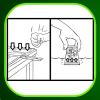
Dunk and Flip
Source Institutions
Learners complete two simple experiments to prove the existence of air and air pressure which surround us.

Crew Strength Training
Source Institutions
In this activity, learners will train to develop upper and lower body strength in their muscles and bones by performing body-weight squats and push-ups.
